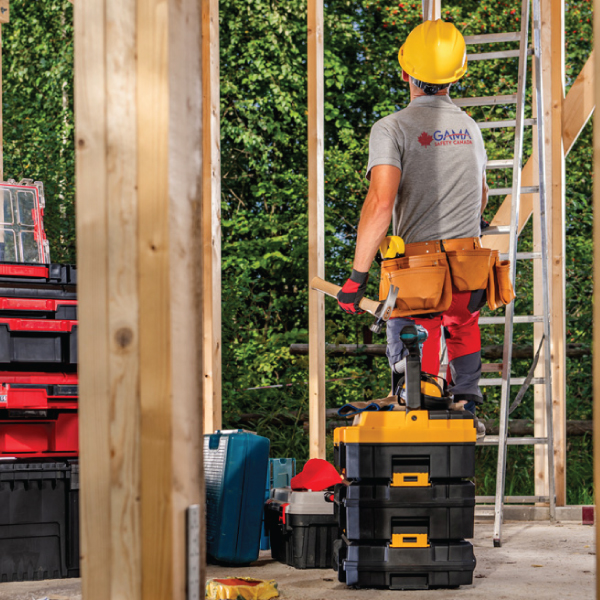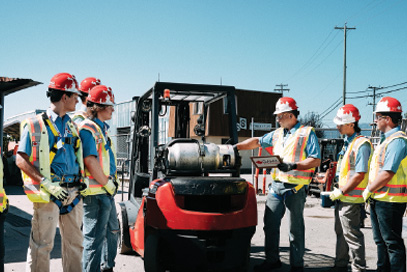Safe Use and Maintenance
of Power Tools for Construction Workers.
Power Tools, including drills, saws, and grinders, are common in many industries, from construction to manufacturing. Proper training on their safe operation, maintenance, and handling is necessary to reduce the risk of accidents, such as electrical shock, cuts, and abrasions, while ensuring maximum efficiency and performance.
Safe Use and Maintenance
of Power Tools for Construction Workers.
Power Tools, including drills, saws, and grinders, are common in many industries, from construction to manufacturing. Proper training on their safe operation, maintenance, and handling is necessary to reduce the risk of accidents, such as electrical shock, cuts, and abrasions, while ensuring maximum efficiency and performance.
OUR PARTNERS AROUND THE WORLD
OUR PARTNERS AROUND THE WORLD
OUR PARTNERS AROUND THE WORLD
OUR PARTNERS AROUND THE WORLD
Power Tools
Basics
Understand the core functions, safe handling, and basic usage of power tools in construction and industrial settings.
Tool Safety
In Practice
Learn best practices for tool inspection, PPE use, and risk prevention when operating common power tools.
Power Tool Safety Resources
Practical guidance on safe use, maintenance, and handling of power tools.
WorkSafeBC regulations on safe use of tools, machinery, and equipment.
Detailed WorkSafeBC guidelines for interpreting and applying Part 12 regulations.
Checklist template to identify and manage risks associated with power tool use.
WorkSafeBC video on safe operation and hazards of using angle grinders.
Video resource on correct handling and safety practices when using nail guns.
Power Tools Essentials:
Staying Safe While Operating Equipment
At GamaSafety, our Power Tools Essentials training is designed to equip workers, supervisors, and safety personnel with the knowledge and skills needed to operate power tools safely, identify potential hazards, and follow proper procedures to prevent injuries on the job site.

POWER TOOLS
Power Tools Safety Overview:
Best Practices and Risk Prevention
Power tools are widely used across construction, manufacturing, and industrial workplaces but without proper training and safe handling procedures, they can quickly become a source of serious injury.
At Gama Safety, we emphasize the importance of understanding the risks associated with power tools and implementing safety measures that protect both workers and job sites. Our training programs and resources are built around nationally recognized safety standards, including CSA regulations and provincial workplace safety laws.
By promoting safe behaviors and regulatory awareness, Gama Safety helps employers reduce the risk of injuries, equipment damage, and costly downtime. Whether you’re new to the field or updating your safety credentials, this section is your starting point for responsible and compliant power tool use.
POWER TOOLS Definition
Power tools are mechanical or electrical devices powered by an external energy source—such as electricity, compressed air, batteries, or fuel—designed to carry out a wide range of construction, repair, and maintenance tasks with greater speed and efficiency than manual tools.
These tools include drills, circular saws, angle grinders, nail guns, sanders, and more. While essential on job sites, power tools come with inherent risks that must be managed through proper handling, usage, and storage.
At GamaSafety, we provide practical, hands-on training to help workers understand the function of different power tools, recognize when and how to use them, and follow safety protocols that reduce the risk of injury or equipment damage. Our programs are aligned with CSA standards and provincial safety regulations, ensuring your team is equipped with the right knowledge to work safely and compliantly.
Despite their everyday use, power tools can become extremely dangerous if mishandled, damaged, or used without proper training. Some of the most common hazards include:
Electric shock due to improper grounding or damaged cords
Lacerations from rotating or sharp parts
Eye and respiratory injuries from flying debris or dust
Burns from overheating or hot surfaces
Repetitive strain injuries from prolonged or incorrect use
Hearing damage from high-decibel tools without hearing protection
Many workplace incidents involving power tools are preventable with proper awareness and training. At GamaSafety, we emphasize hazard identification, safe work procedures, and emergency response strategies as part of every power tools course—giving workers and employers the tools they need to prevent accidents before they happen.
Ensuring the safe use of power tools starts with the right training. At GamaSafety, our Power Tools Safety courses are developed in alignment with national and provincial standards, including the Occupational Health and Safety Act (OHSA) and CSA Z462 for electrical safety.
Our training programs focus on:
Pre-use inspection procedures
Tool-specific operating guidelines
Selection and proper use of personal protective equipment (PPE)
Electrical safety and lockout/tagout awareness
Maintenance and storage protocols
Real-life scenarios to reinforce decision-making in the field
By equipping your team with these best practices, we help you reduce workplace injuries, improve operational efficiency, and meet compliance requirements. Whether you're training new hires or refreshing your crew's knowledge, GamaSafety is your partner in building a stronger safety culture around power tool use.
Power tools are among the most commonly used and misused pieces of equipment in the construction industry. Despite their everyday appearance, power tools have the potential to cause life-changing injuries if handled improperly. For this reason, power tools safety training is not optional it’s essential.
At GamaSafety, we help both individuals and companies understand that safe usage begins with the right mindset and education. Our courses are designed to teach not only technical operation but also the importance of situational awareness, hazard recognition, and decision-making under pressure.
Proper training reduces the likelihood of accidents, minimizes downtime, and ensures your crew can work with confidence and efficiency. Investing in power tools safety training means investing in the health of your team and the success of your business.
GamaSafety’s Power Tools Safety Course is a practical, hands-on training experience tailored for construction professionals working with powered equipment. Delivered both On-Campus and Onsite, the course is structured to meet the real demands of Canadian job sites.
Participants will learn how to:
Identify and assess risks associated with specific power tools
Perform daily inspections and detect tool malfunctions
Use tools according to manufacturer specifications
Choose and correctly wear appropriate PPE
Maintain tools for long-term safe operation
Respond appropriately in case of an incident or emergency
The training is guided by certified instructors with industry experience, and participants receive a certificate upon successful completion. Whether you are onboarding new employees or maintaining regulatory compliance, this course supports your commitment to safety and professional development.
POWER TOOLS Legislation
In Canada, the use of power tools in the workplace is governed by a combination of federal and provincial safety regulations. These laws are designed to protect workers from hazards related to electric, pneumatic, and fuel-powered tools.
At GamaSafety, our training aligns with key legislation such as the Occupational Health and Safety Act (OHSA) in Ontario and similar acts across provinces. These laws require employers to ensure that all power tools are properly maintained, that workers receive adequate training, and that personal protective equipment (PPE) is used when necessary.
Understanding your responsibilities under these laws is essential not only for compliance but for fostering a safer and more efficient work environment.
The Canadian Standards Association (CSA) plays a crucial role in setting safety standards for power tools used in industrial and construction settings. Standards such as CSA Z462 outline best practices for electrical safety in the workplace, including the proper use and inspection of power tools.
At GamaSafety, our courses incorporate these standards into practical training sessions that help workers operate power tools safely and legally. Employers are encouraged to only purchase and use CSA-certified equipment, as this certification indicates compliance with national safety benchmarks.
CSA standards aren’t just guidelines they are often referenced in legislation and workplace inspections. Staying familiar with them is key to remaining compliant and avoiding costly penalties.
Under occupational health and safety laws, employers in Canada are legally required to ensure that all tools and equipment, including power tools, are maintained in a safe condition. This includes performing regular inspections, removing defective tools from service, and documenting maintenance records.
GamaSafety’s training programs include modules on how to conduct visual and functional inspections of drills, grinders, saws, and more. Participants learn what to look for such as frayed cords, faulty triggers, or missing guards and how to report and tag out defective equipment.
Failure to comply with these legal requirements can lead to regulatory citations, injuries, or even criminal liability in the event of serious incidents.
Canadian workplace legislation clearly outlines the duties of both employers and workers when it comes to the use of power tools. Employers must:
Provide safe, CSA-approved tools
Train workers in the proper and safe use of tools
Conduct regular workplace inspections
Supply required PPE
Meanwhile, workers have a legal obligation to:
Use tools only as trained and instructed
Report hazards or equipment issues immediately
Follow safety protocols and wear PPE as required
GamaSafety’s Power Tools Safety course addresses both perspectives, helping build a shared responsibility culture that promotes legal compliance and prevents injuries.
While many safety principles are national, workplace safety legislation in Canada is enforced at the provincial and territorial level, meaning requirements can vary depending on location. For example:
In Ontario, the OHSA Regulation 851 applies to power tool use in industrial settings.
In British Columbia, WorkSafeBC outlines specific responsibilities for tool inspection, training, and worker protection under Part 12 of its OHS Regulation.
In Alberta, the OHS Code addresses power tool safety under Part 18: Personal Protective Equipment and Safe Work Practices.
At GamaSafety, we tailor our training to reflect the specific legislative requirements in your province, ensuring every course meets local standards. Understanding these regional laws is essential for nationwide companies and workers who move between job sites across Canada.
Other Courses You May Be Interested In.
Workers who complete POWER TOOLS training often continue their safety education with the following programs:"
More Courses
Online Courses
"Explore & Book Online Courses!
Have a Question?
"We’re here to help! Click the button to get in touch."


